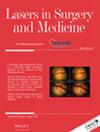Safety Assessment of a 1940 nm Tm:YAP Laser for Fractional Skin Ablation in a Swine Model
Abstract
Objectives
This exploratory study was aimed to evaluate the safety and preliminary efficacy of Epicare, a 1940 nm thulium-doped yttrium aluminum perovskite (Tm:YAP) laser, for fractional skin ablation in a swine model. The goal was to assess collagen remodeling and tissue responses across varied laser settings to optimize skin resurfacing applications.
Materials and Methods
Two female domestic swine were subjected to controlled fractional laser ablation using Epicare across 52 marked abdominal sites with varying energy settings. Macroscopic examinations of ablated sites were conducted immediately following ablation and at 1, 3, 7, 14, 22, and 29 days postablation. Histopathological evaluation was conducted immediately posttreatment, and at 1, 7, and 29 days postablation. Observed parameters included epidermal regeneration, dermal remodeling, inflammation, and collagen deposition.
Results
Macroscopic evaluations revealed a fractional, clear, and immediate impact of ablation, consisting primarily of erythema and edema, which resolved without complications by Day 14. Histopathological analysis indicated focal, cylinder-like structures associated with necrotic epidermis and dermis, which healed progressively (i.e. from day 1), transitioning to complete epidermal regeneration by Day 7 for most energy settings. By Day 29, advanced collagen deposition and no residual inflammation indicated effective dermal remodeling, consistent with rapid healing and minimal adverse reactions.
Conclusions
Epicare demonstrated a favorable safety profile and effective tissue ablation. These findings support the laser's potential for dermatologic applications while emphasizing the need for further investigation to confirm its efficacy and optimal settings in human clinical trials.


 求助内容:
求助内容: 应助结果提醒方式:
应助结果提醒方式:


